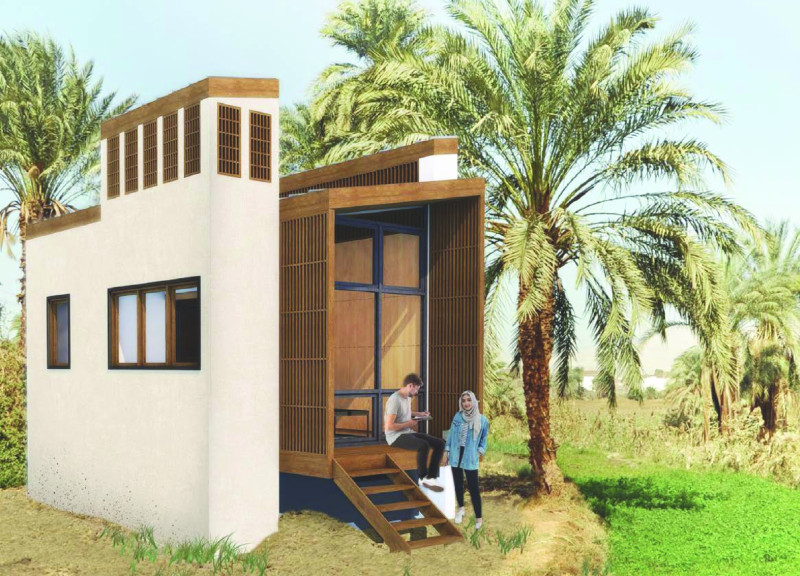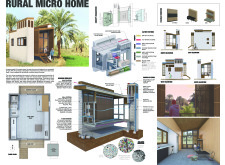5 key facts about this project
The rural micro home project introduces a new take on sustainable living, designed specifically for peri-urban areas such as Cairo, Egypt. Covering about 23.5 square meters, it focuses on creating an efficient space that operates independently of external resources. The design responds to local needs, carefully considering economic, cultural, and environmental impacts while being adaptable to various global contexts.
Building Envelope
The structure features a roof made of zinc standing seam panels, which facilitate both rainwater collection and solar energy utilization. This choice reflects a practical approach to energy independence. Walls consist of modular recycled plastic blocks bound with a plant-based sealant, known as polyvinyl acetate, or PVA. This material selection not only promotes sustainability but also improves thermal performance. Large operable windows enhance airflow, contributing to a refreshing indoor atmosphere.
Active and Passive Systems
The micro home is equipped with systems that allow for efficient energy and water management. It includes photovoltaic solar panels to meet electricity needs and a biogas tank that turns organic waste into both biomethane fuel and organic fertilizer for plants. Additionally, the home features water systems that capture hot water and recycle grey water, ensuring efficient resource use.
Spatial Arrangement
The interior is thoughtfully divided into key areas: a main living space, kitchen, shower, and toilet. This setup maximizes functionality in a small area, fitting diverse needs. Flexible furniture, like a desk that can also serve as a bed, adds versatility to the living experience while maintaining comfort.
The design highlights details such as a wind catch, also referred to as "Malkaf," which helps naturally cool the home. Through evaporative techniques, it keeps indoor temperatures pleasant without relying on energy-intensive systems. The combination of these elements creates a space that meets modern living standards with a commitment to sustainability.




















































